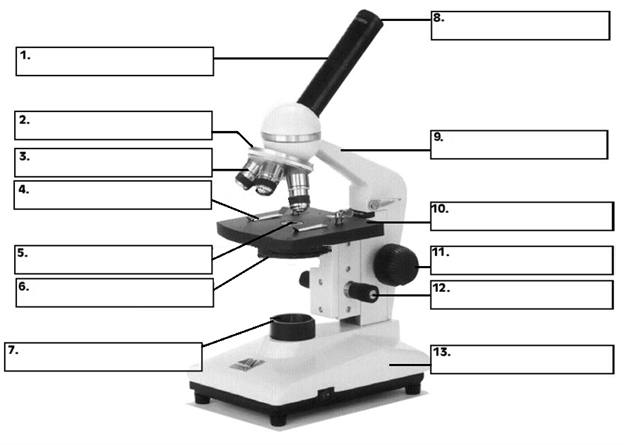Module 1 - TEST (copy)
1/54
Earn XP
Description and Tags
Name | Mastery | Learn | Test | Matching | Spaced |
|---|
No study sessions yet.
55 Terms
quantitative observations
involves numbers, such as counting or measuring
quantitative observation example
A scientist observing there are a total of 5 bears in the river.
qualitive observations
Observations that are not easily counted or measured, such as color or texture
qualitive observation example
A scientist observing the color of the bears or their exact location, such as near the waterfall in the river.
hypothesis
A suggested, testable answer to a well-defined scientific question or a possible, testable explanation for observations.
Independent variable
The variable manipulated by the experimenter
Dependent variable
The variable responding to the manipulated variable
If you were trying to test if watering plants with coffee cause the plants to grow faster than plants watered with water, what could your hypothesis possibly be?
Plants will grow faster with coffee, than with water.
If you were trying to test if watering plants with coffee cause the plants to grow faster than plants watered with water, what would your independent variable be?
The coffee given to the plant.
If you were trying to test if watering plants with coffee cause the plants to grow faster than plants watered with water, what would your dependent variable be?
How fast the plant actually grows.
If you were trying to test if watering plants with coffee cause the plants to grow faster than plants watered with water, what would your experimental group be?
The plants given coffee and no water.
If you were trying to test if watering plants with coffee cause the plants to grow faster than plants watered with water, what would your control group be?
The plants given water as they usually do.
spontaneous generation
the supposed production of living organisms from nonliving matter
What are the six criteria for life?
cells
growth and development
metabolism and energy
homeostasis
sense and respond to stimuli
DNA and reproduction
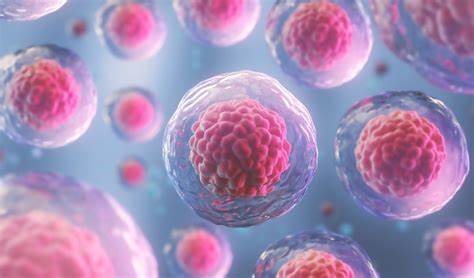
Why did scientists choose cells as a criteria for life?
All life has them and they are the most basic unit of structure and function for living things.
Why did scientists choose growth and development as a criteria for life?
All living things have cells that grow in size and increase the number of cells they have.
Why did scientists choose metabolism and energy as a criteria for life?
All living things require energy to power activities. This energy comes from the sun (autotrophs) or food (heterotrophs). Metabolism is the sum of all the chemical reactions to obtain and convert energy.
Why did scientists choose homeostasis as a criteria for life?
All living things maintain a stable internal environment by regulating all of the chemical processes occurring in them.
Why did scientists choose sense and respond to stimuli as a criteria for life?
All living things have the ability to sense and respond to their environment. Sunflowers leaning toward the sun is an example.
Why did scientists choose DNA and reproduction as a criteria for life?
All living things contain hereditary information in their DNA. This remarkable chemical enables life to continue through reproduction.
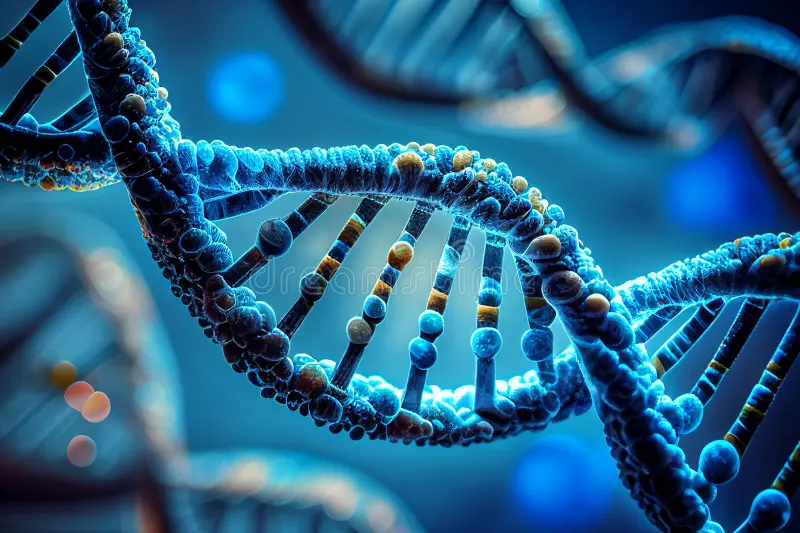
What could a very simple definition of DNA be?
The set of instructions that arranges the chemicals that make up life to produce a living system.
Can science actually prove something?
No. The best it can say is that all know data support a given statement. However, since all data come from experiments that might be flawed, there is no way that science can prove anything. If the experiments that produced the data that support a particular statement are flawed, the statement might be quite wrong.
A scientist makes a few observations and develops an explanation for the observations that they have made. At this point, is the explanation a hypothesis, scientific theory, or scientific law?
It is a hypothesis. The explanation will have to be tested with a significant amount of data before it can even be considered a theory.
Why do scientists need to test only one variable at a time?
So that they know the variable they’re testing is the only factor affecting the outcome of the experiment.
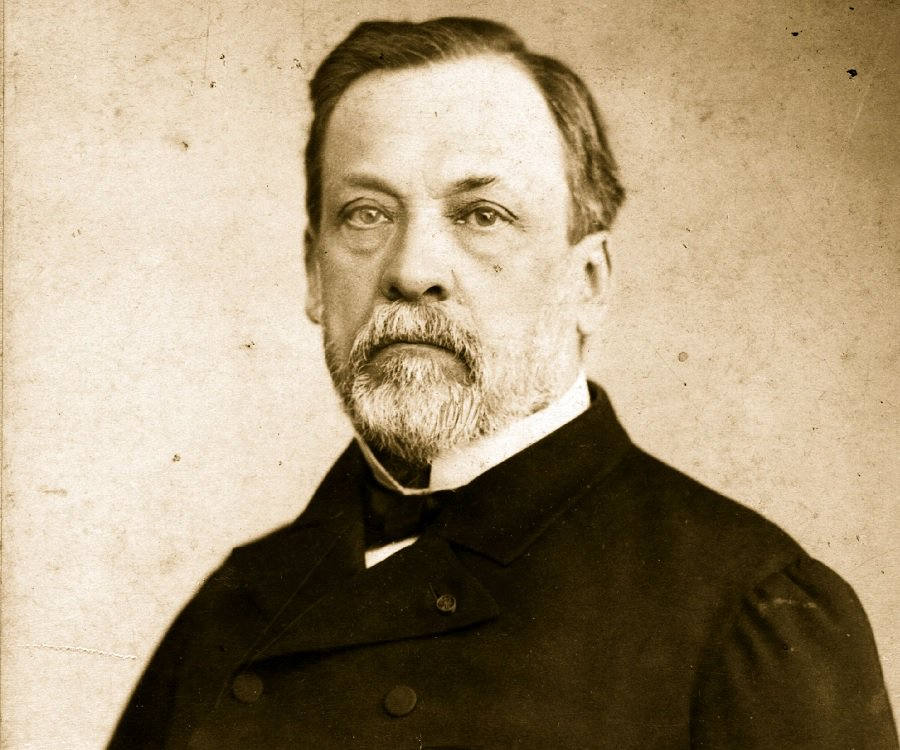
Louis Pasteur’s impact on the scientific community
That all living things come from other living things and that spontaneous generation was not possible.
Why should scientific laws not be considered 100% reliable?
The nature of science is to change theories and laws when new evidence requires it. Because it is impossible to fully test a scientific law and because laws are tested by experiments that might be flawed, scientific laws are not necessarily true. They represent the best conclusions that science has to offer, but they are not completely reliable.
abiogensis
The idea that long ago, very simple life forms spontaneously appeared through chemical reactions.
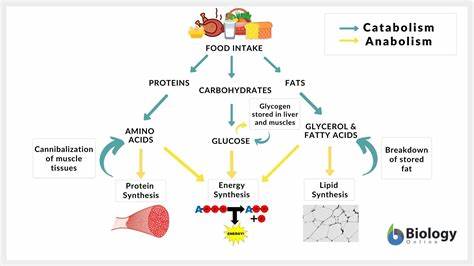
When you eat, you will then metabolize that food. What two processes are going to occur next?
Catabolism - You’re going to break down the chemicals from the food to make energy and simple chemical building blocks.
Anabolism - Once you have the energy made from the process of catabolism, your body will use some the energy to take simple chemicals and build large, complex chemicals that you need for your body to work properly.
asexual reproduction
Process by which a single organism produced genetically identical offspring (offspring receives all DNA from one parent.)
sexual reproduction
Process by which two parents produce genetically different offspring (offspring receives a combination of DNA from two parents.)
unicellular
“single-celled”
multicellular
“many-celled”
Abiogenesis
the idea that long ago, very simple life forms spontaneously appeared through chemical reactions
Spontaneous Generation
the idea that living organisms were formed from nonliving materials
biogenesis
life as coming only from prior life
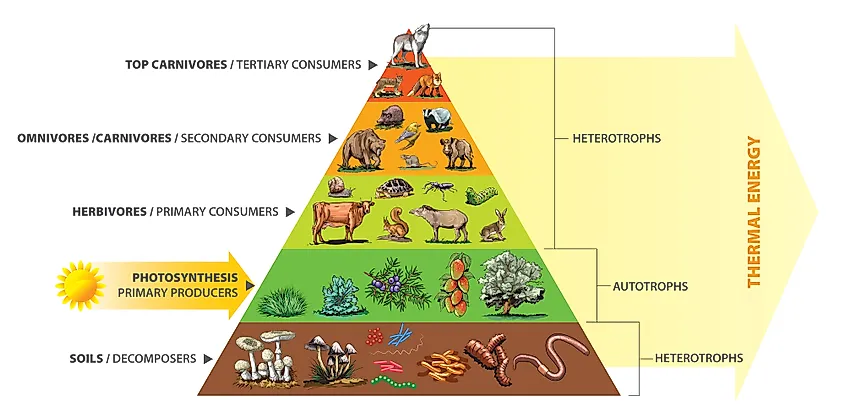
herbivores
eat only plants
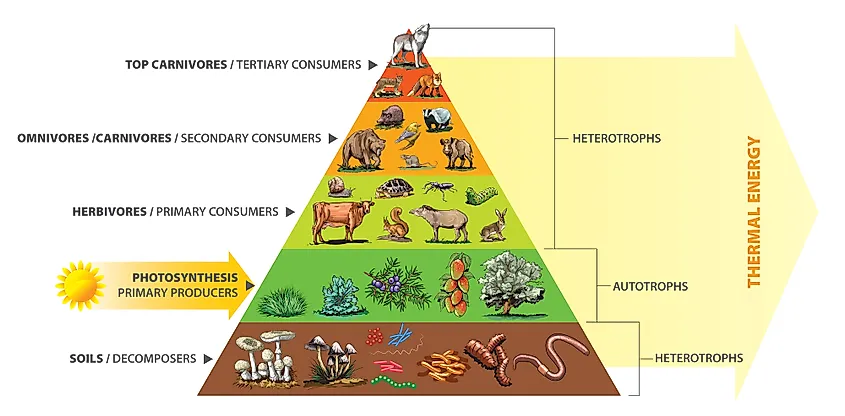
carnivores
eat only organisms other than plants
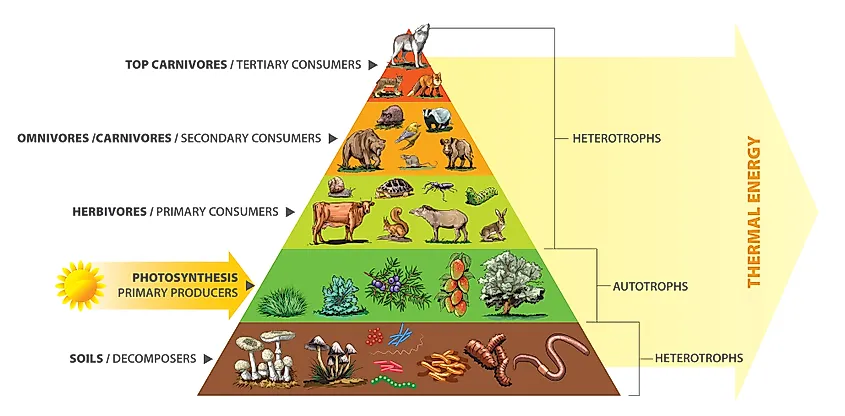
omnivores
eat both plants and other organisms
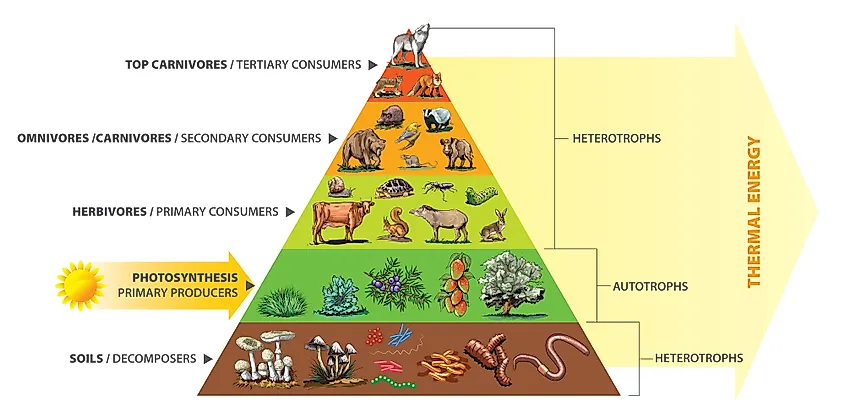
autotrophs
make their own food (sunflower)
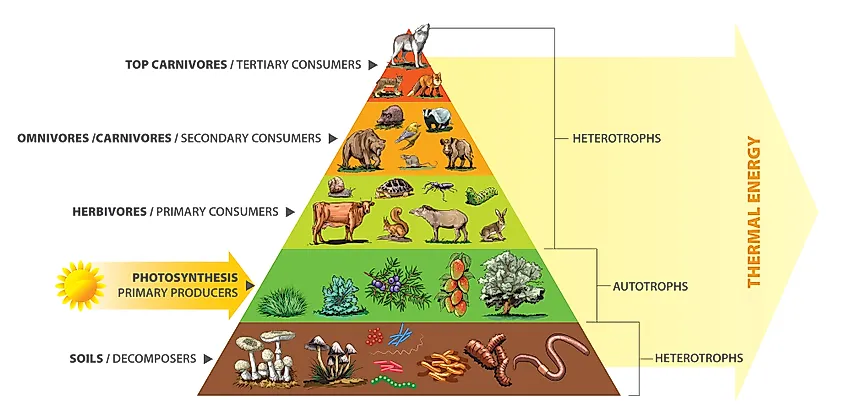
heterotrophs
depend on other organisms for their food
inhertiance
The process by which physical and biological characteristics are transmitted from the parent (or parents) to the offspring.
mutation
An abrupt and marked change in the DNA of an organism compared to that of its parents.
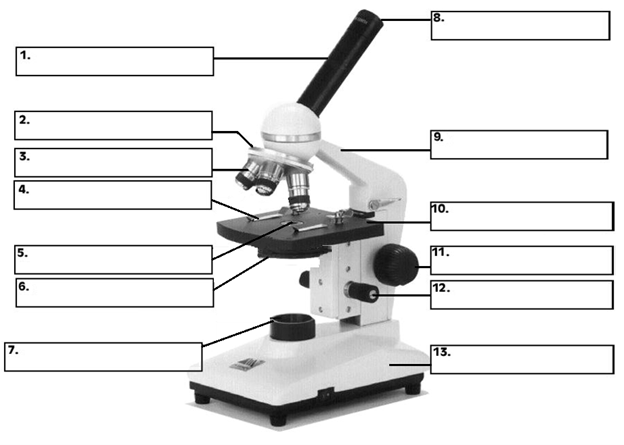
#1
bodytube
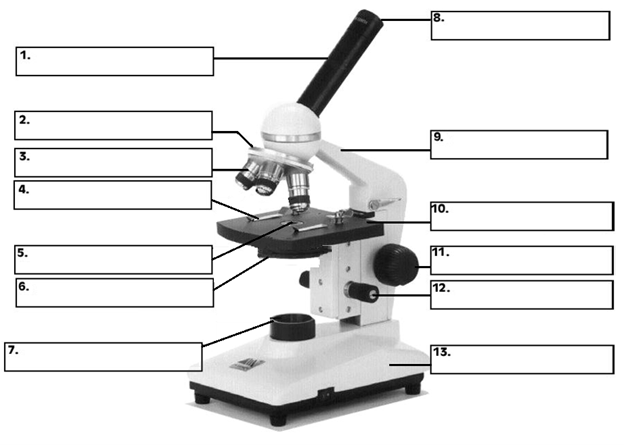
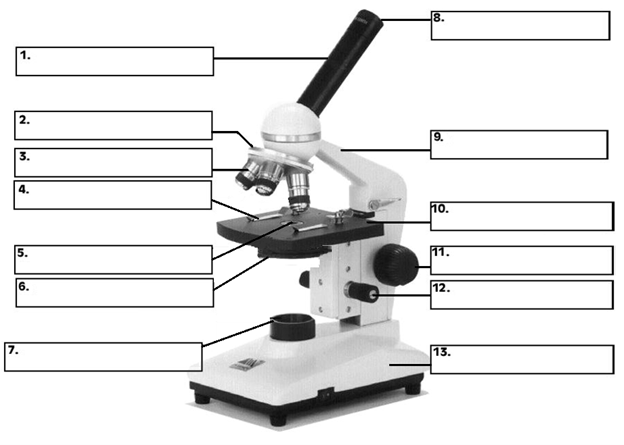
#2
revolving nose piece
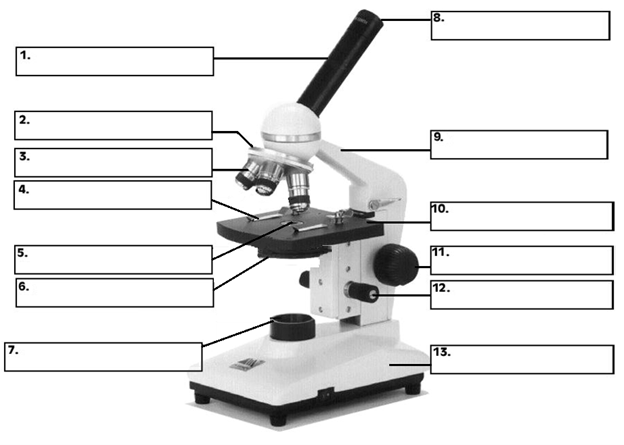
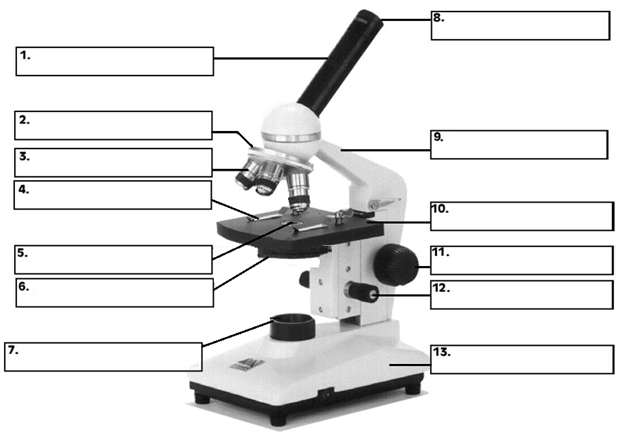
#3
objective
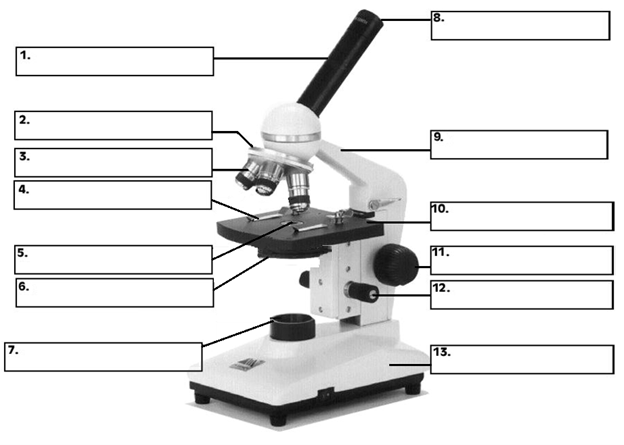
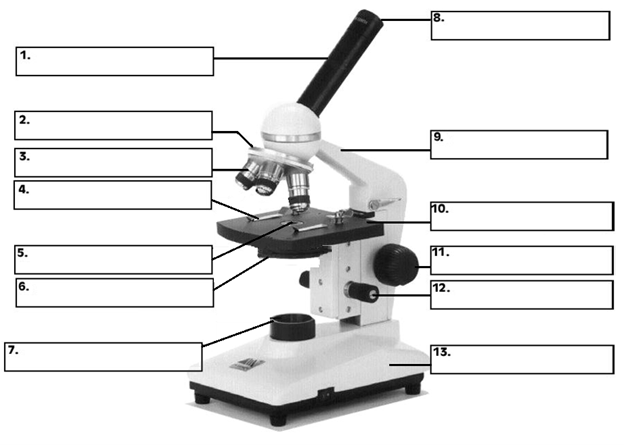
#4
stage clamps
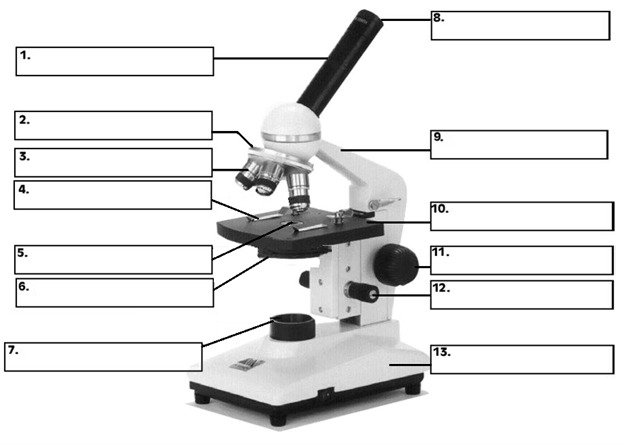
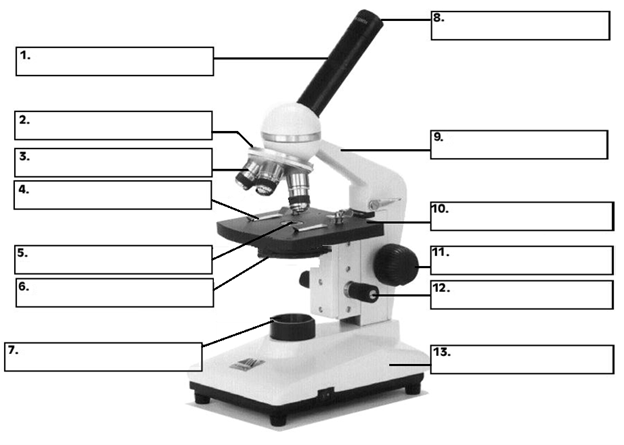
#5
aperture
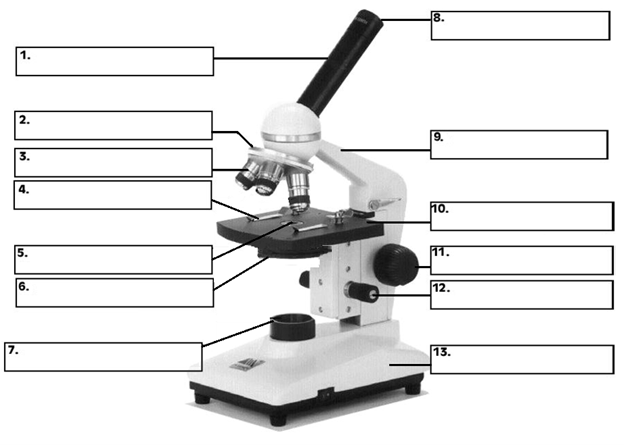
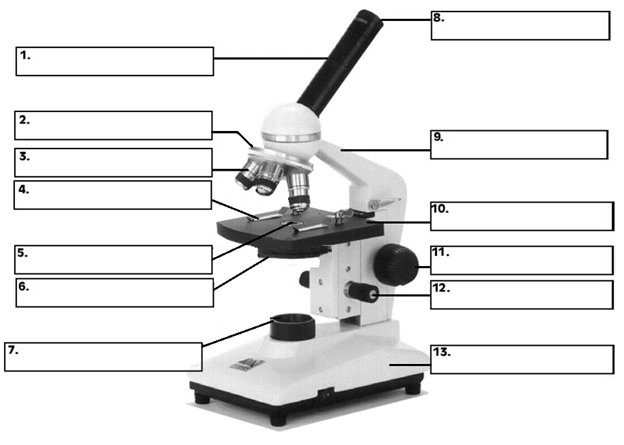
#6
diaphragm
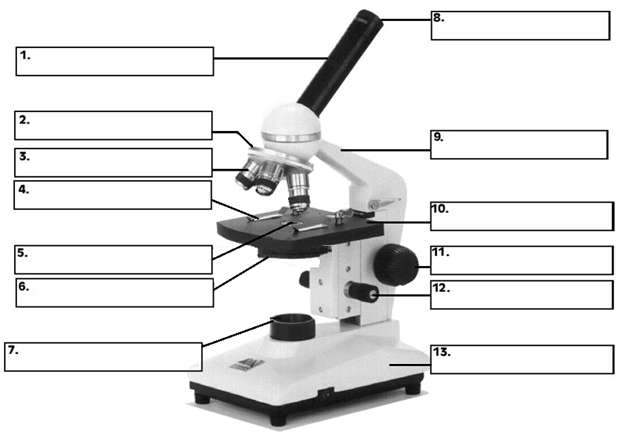
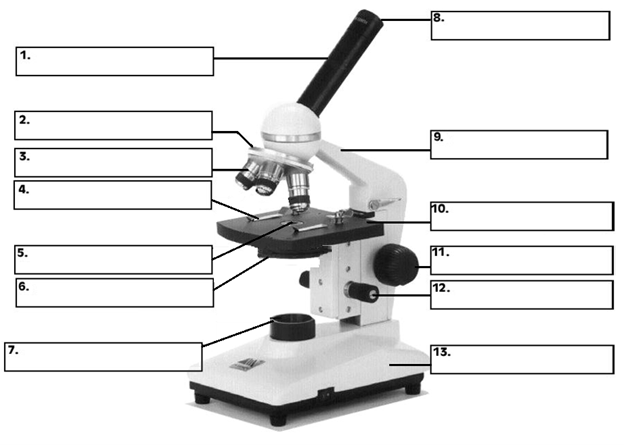
#7
light source
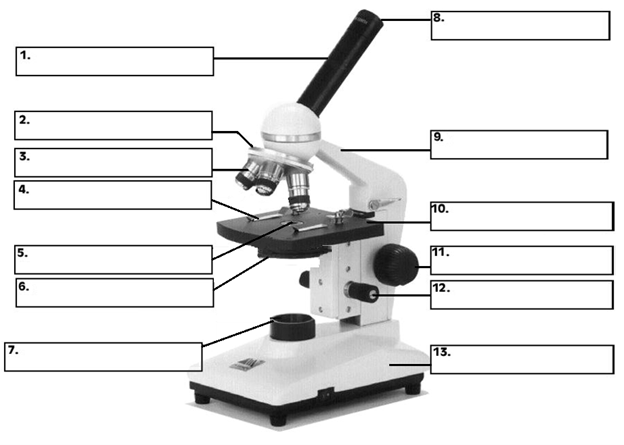
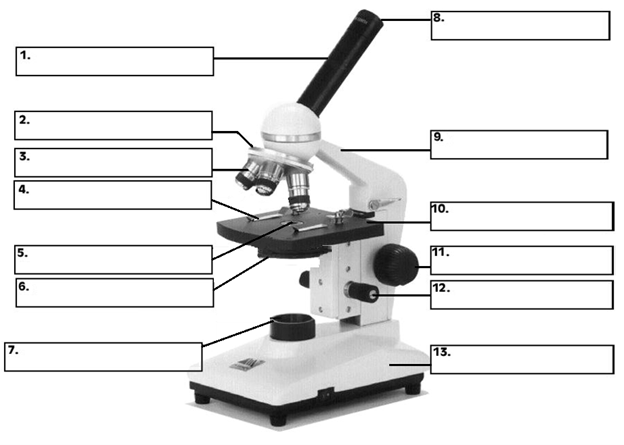
#8
eyepiece
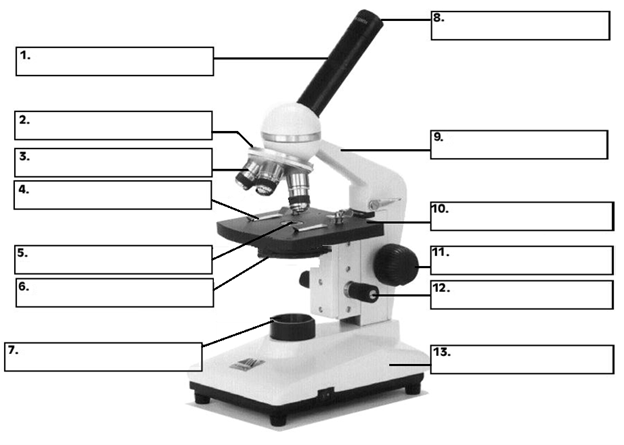
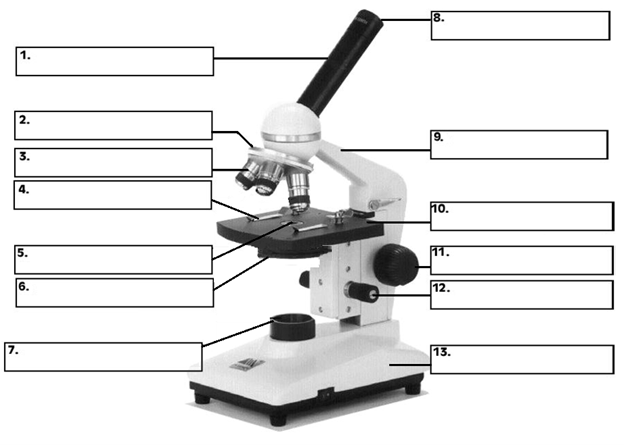
#9
arm
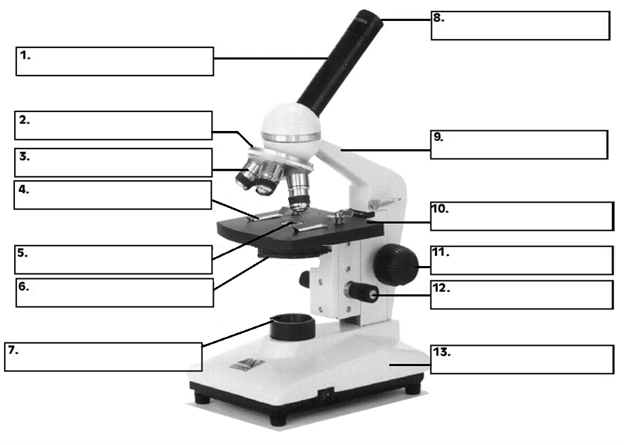
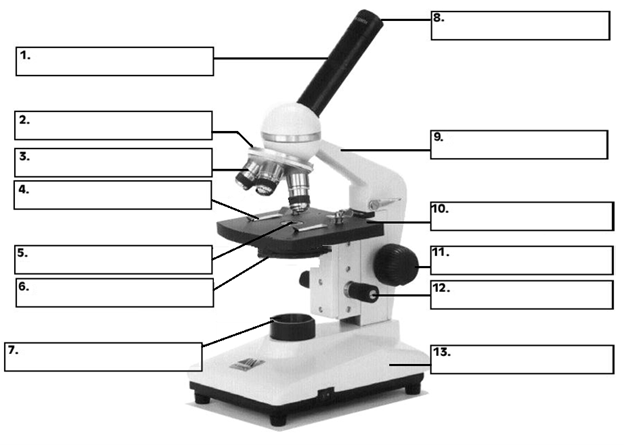
#10
stage
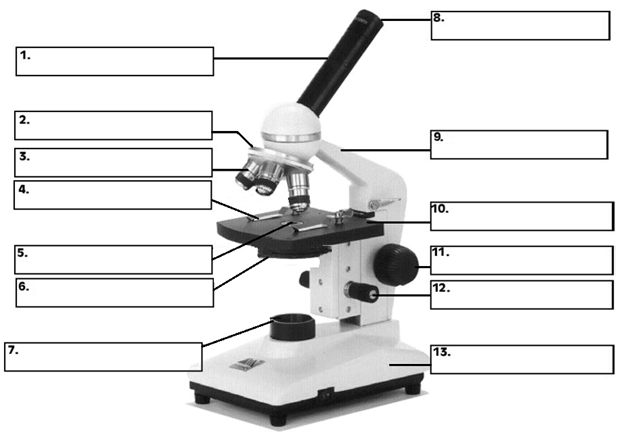
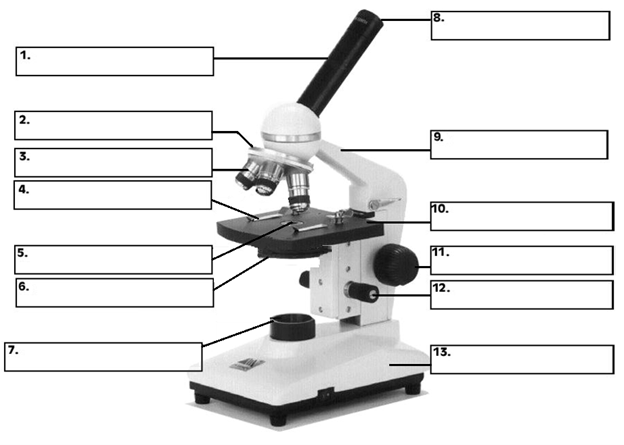
#11
coarse focus
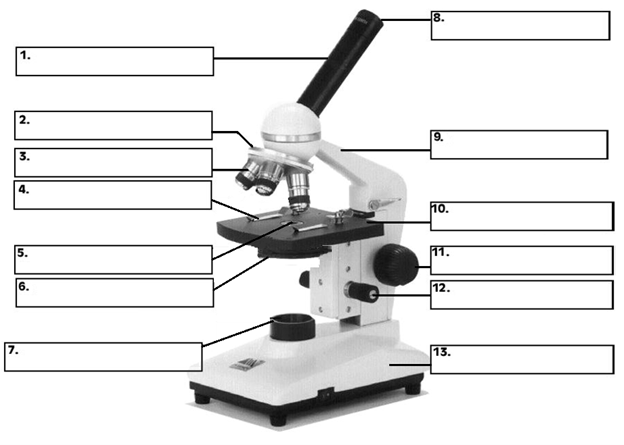
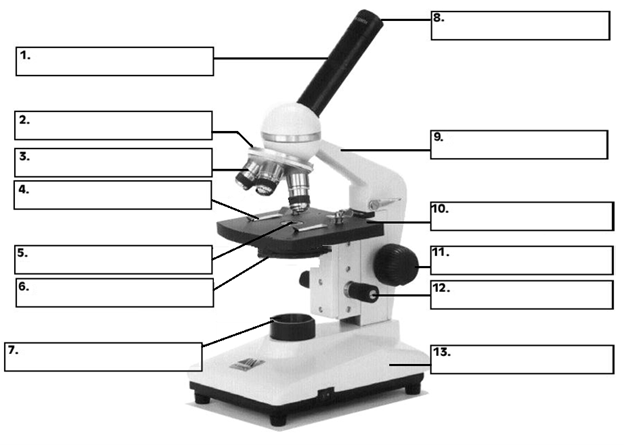
#12
fine focus
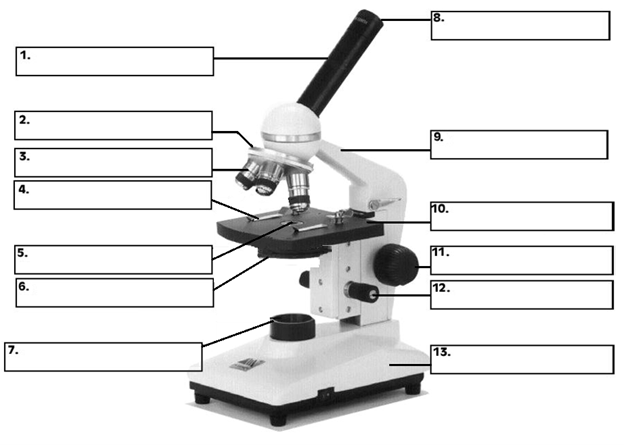
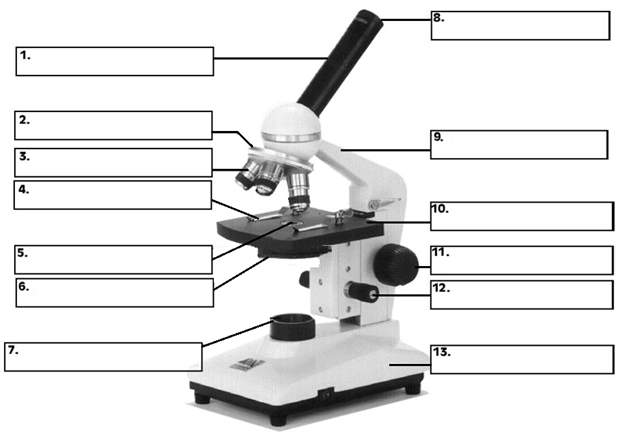
#13
base
